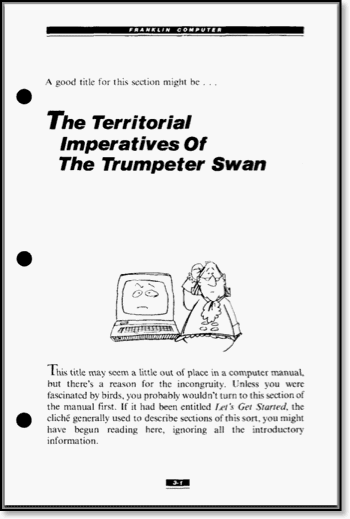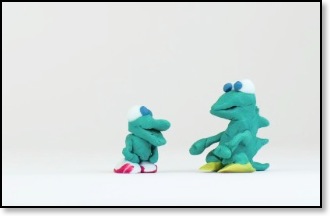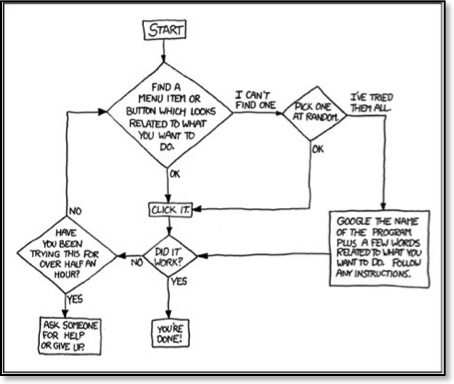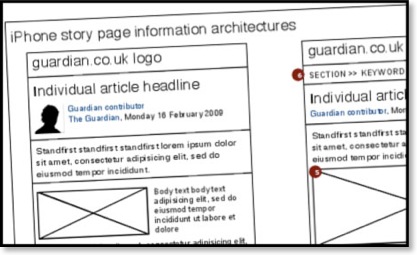It never crossed my mind to do this
02/28/10 16:40 Filed in: books
From BookPage:
You might remember that in 2005, a woman paid $25,100 for the privilege of having a Stephen King character—a zombie, in fact—named after her brother. (The book was Cell, and the zombie’s name was “Huizenga.”) The proceeds, earned in an auction, went to the First Amendment Project, which has also allowed bidding for characters in John Grisham, Dave Eggers and Neil Gaiman books.
Wow, $25000?
Can we get some bids on being in an index?
There's more info at the web site for more contests of this sort. Ye who feel rich, go for it!
You might remember that in 2005, a woman paid $25,100 for the privilege of having a Stephen King character—a zombie, in fact—named after her brother. (The book was Cell, and the zombie’s name was “Huizenga.”) The proceeds, earned in an auction, went to the First Amendment Project, which has also allowed bidding for characters in John Grisham, Dave Eggers and Neil Gaiman books.
Wow, $25000?
Can we get some bids on being in an index?
There's more info at the web site for more contests of this sort. Ye who feel rich, go for it!
Ah, the good old days of technical manuals
02/27/10 16:38 Filed in: books
Copied and
glued together.... Here's a great post from
Ironic Sans, with some seriously funny examples.
It was the golden days of Easter Egg hunting in
manuals.


Information architecture in claymation
02/23/10 16:31 Filed in: taxonomies
| search

This is the
winner of the Explain IA award.
Go watch! Be careful of the bleeped language,
though. Yes, bleeps seem to be required in the
explanation
Books are fringe media?
02/22/10 16:28 Filed in: books
I think
not, but here's
Kevin Kelleher's opinion:
I just finished a book — Richard Price’s excellent “Lush Life”
— hardly a noteworthy feat except it’s the first book I’ve read cover to cover in several months. It languished for years on my reading list, which has itself grown longer by the week. In fact, of all the books I’ve read in my life, a shockingly small percentage have been read in the past several years.
My opinion? There is room in your life for whatever you make room for. So if you aren't reading, it's your own choice....
I just finished a book — Richard Price’s excellent “Lush Life”
— hardly a noteworthy feat except it’s the first book I’ve read cover to cover in several months. It languished for years on my reading list, which has itself grown longer by the week. In fact, of all the books I’ve read in my life, a shockingly small percentage have been read in the past several years.
This has a lot to do with the people who write, publish and sell books. The big threat to Amazon’s Kindle isn’t people reading e-books on the iPad or the Nook. It’s that books are becoming fringe media.
My opinion? There is room in your life for whatever you make room for. So if you aren't reading, it's your own choice....
What is a book?
Nice post
from
Dick Margulis:
Have you been trying to follow any of the many recent discussions about e-books and e-readers, about access to knowledge and protecting authors’ rights, about book scanning and copyright? Are you confused?
Me too.
What confuses me is that putatively smart people are making such simplistic prognostications and arguments. End of the book as we know it indeed! Please. I don’t think so.
The rhetorical problem, it seems to me, is that we have a word, book, that represents not one category but many categories of objects, both concrete and abstract, both physical and virtual. Most people who work with books of one sort see their grove of trees as the whole forest.
This is an easy trap to fall into: if you spend your life in the world of genre fiction, then books means genre fiction. If you spend your life in research libraries studying the history of fruit fly research, then books means obscure, long-forgotten monographs in danger of being deaccessioned and lost to history.
He goes on to list genres and what he thinks might happen to them. Interesting!
Have you been trying to follow any of the many recent discussions about e-books and e-readers, about access to knowledge and protecting authors’ rights, about book scanning and copyright? Are you confused?
Me too.
What confuses me is that putatively smart people are making such simplistic prognostications and arguments. End of the book as we know it indeed! Please. I don’t think so.
The rhetorical problem, it seems to me, is that we have a word, book, that represents not one category but many categories of objects, both concrete and abstract, both physical and virtual. Most people who work with books of one sort see their grove of trees as the whole forest.
This is an easy trap to fall into: if you spend your life in the world of genre fiction, then books means genre fiction. If you spend your life in research libraries studying the history of fruit fly research, then books means obscure, long-forgotten monographs in danger of being deaccessioned and lost to history.
He goes on to list genres and what he thinks might happen to them. Interesting!
Figuring out computer issues
02/12/10 10:46 Filed in: miscellany
Hugh McGuire is always worth reading... but this
flowchart stopped me cold. I need to send this to my
dad, my sis-in-law, my brother-in-law and everyone
else who calls me for computer tech support!

We used to call this technique "poking around at it" when I worked in a doc team. After the half hour was up and I would go ask, the first question would be "Did you poke around at it?" Of course, advanced poking around included "what did you install last, and when did you install it?" and other such questions.
But this flowchart was in an article about the iPad, and how it may change computing. Because it would stop this kind of trouble. You use an app that does what it does, and if you are trying to get that done, well, then it is done. No more poking around.

We used to call this technique "poking around at it" when I worked in a doc team. After the half hour was up and I would go ask, the first question would be "Did you poke around at it?" Of course, advanced poking around included "what did you install last, and when did you install it?" and other such questions.
But this flowchart was in an article about the iPad, and how it may change computing. Because it would stop this kind of trouble. You use an app that does what it does, and if you are trying to get that done, well, then it is done. No more poking around.
Cool desks
02/08/10 10:42 Filed in: miscellany

This is the only one with drawers, unfortunately. How do people live without drawers? For more minimalist design, here you go.
My desk is actually two small dining room tables, trimmed down in height to fit my size, and with two rolling file cabinet/drawer units that slide underneath. I need drawers! And access to my files!
The Guardian defines Information Architecture
02/06/10 10:41 Filed in: miscellany

A drawing from the Guardian's mockup of their iPhone app development
Martin Belam: Starting a blog post with a definition of the topic to be discussed makes me feel rather like the captain of a school debating society. However, I've struggled to find a better introduction to the question of "What is information architecture?" than the definition provided by the Information Architecture Institute.
We define information architecture as the art and science of organizing and labeling websites, intranets, online communities and software to support usability.
Or as someone once put it to me: "You just draw boxes, don't you?".
Basic math, from fish to infinity
02/05/10 10:39 Filed in: miscellany
I know,
this has nothing to do with indexing, but I really
like Steven Strogatz's writing:
The best introduction to numbers I’ve ever seen — the clearest and funniest explanation of what they are and why we need them — appears in a “Sesame Street” video called “123 Count With Me.” Humphrey, an amiable but dim-witted fellow with pink fur and a green nose, is working the lunch shift at The Furry Arms hotel, when he takes a call from a room full of penguins. Humphrey listens carefully and then calls out their order to the kitchen: “Fish, fish, fish, fish, fish, fish.” This prompts Ernie to enlighten him about the virtues of the number six.
Children learn from this that numbers are wonderful shortcuts. Instead of saying the word “fish” exactly as many times as there are penguins, Humphrey could use the more powerful concept of “six.”
The best introduction to numbers I’ve ever seen — the clearest and funniest explanation of what they are and why we need them — appears in a “Sesame Street” video called “123 Count With Me.” Humphrey, an amiable but dim-witted fellow with pink fur and a green nose, is working the lunch shift at The Furry Arms hotel, when he takes a call from a room full of penguins. Humphrey listens carefully and then calls out their order to the kitchen: “Fish, fish, fish, fish, fish, fish.” This prompts Ernie to enlighten him about the virtues of the number six.
Children learn from this that numbers are wonderful shortcuts. Instead of saying the word “fish” exactly as many times as there are penguins, Humphrey could use the more powerful concept of “six.”
Best glasses ever
02/02/10 10:33 Filed in: miscellany
From the
Guardian, a list of the best glasses in fiction:
Lord of the Flies by William Golding Perhaps the most famous pair of glasses in literature belongs to Piggy in Golding's novel. They are used as "burning glasses" to start a fire (physically impossible as Piggy is short-sighted). Then nasty Jack breaks one of the lenses. Later the specs are stolen, leaving Piggy almost sightless as a prelude to his murder.
More, and I won't tell you why, so you have to go read it ...
Harry Potter and the Philosopher's Stone
Gulliver's Travels
Tinker, Tailor, Soldier, Spy
The Oxford Reading Tree
Emma
East Lynne
"The Adventure of the Golden Pince-Nez"
Focus
The Great Gatsby
Lord of the Flies by William Golding Perhaps the most famous pair of glasses in literature belongs to Piggy in Golding's novel. They are used as "burning glasses" to start a fire (physically impossible as Piggy is short-sighted). Then nasty Jack breaks one of the lenses. Later the specs are stolen, leaving Piggy almost sightless as a prelude to his murder.
More, and I won't tell you why, so you have to go read it ...
Harry Potter and the Philosopher's Stone
Gulliver's Travels
Tinker, Tailor, Soldier, Spy
The Oxford Reading Tree
Emma
East Lynne
"The Adventure of the Golden Pince-Nez"
Focus
The Great Gatsby